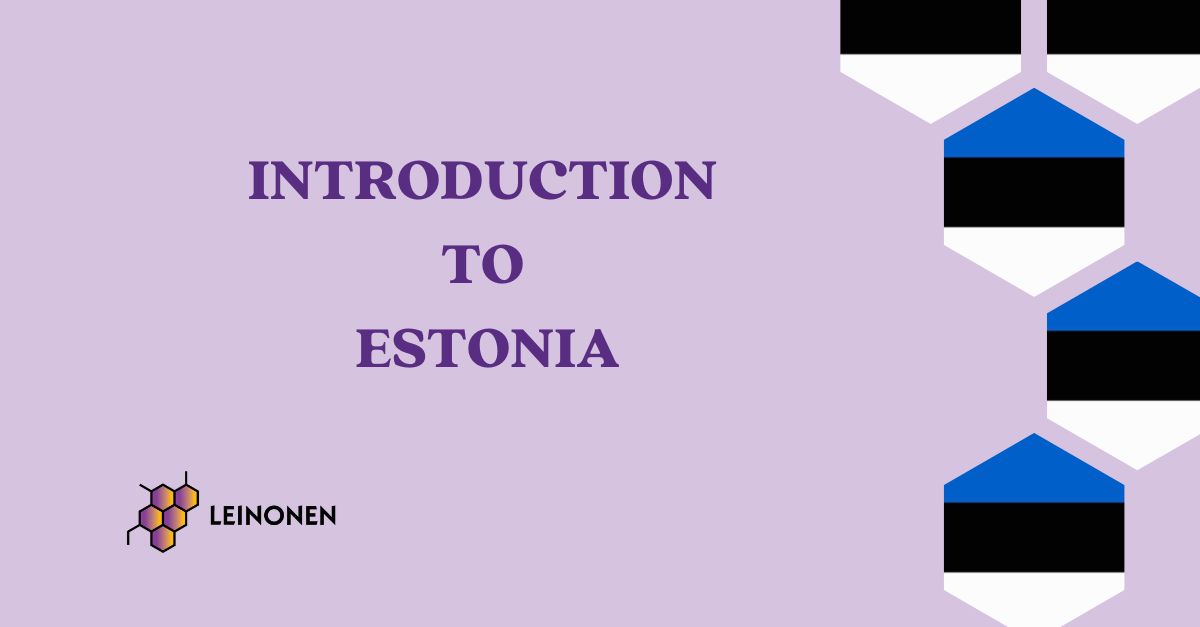Over 27 years Leinonen Group has expanded it´s reach to 12 markets around Scandinavia, Baltic States and Central Eastern Europe to help companies by vast knowledge and expertise in accounting, tax and legal issues and helping them in conducting businesses in foreign markets.
As one of our key cornerstones in Leinonen Group is having lots of expertise from different markets, we will introduce you all our markets in more depth starting from LEINONEN ESTONIA.
Leinonen Estonia was our first branch abroad and by today having more than 40 experienced professionals providing world class accounting services to a wide range of clients established or expecting to commence activities in Estonia. Besides being TOP2 accounting company in the country, Leinonen Estonia also provides tax and legal services. Having the best tax advisors with different backgrounds ensures their clients the best understanding of tax and provides help with legal issues that the businesses are facing.
We made a small interview with the Managing Director of Leinonen Estonia, Kaire Rebane, and asked her 3 questions about Estonian business:
1. What characterizes Estonia´s business environment? Why should companies invest in Estonia?
Estonia, or should we say e-Estonia, is an extremely attractive market for foreign companies for many reasons. It has become probably the first country in the world that offers e-residency. This means that entrepreneurs around the world can set up and run a business in Estonia if they are e-residents.
World’s most innovative e-services
E-residency allows the entrepreneur to run their everyday businesses remotely as e-registers facilitate reporting and various inquiries (e-tax reporting system, e-statistics, e-health insurance fund, e-credit inquiries, e-land register, e-health information, e-unemployment office, e-banking with 99% of banking transactions made online, etc.). All accounting services are also made online. Read further about doing business in Estonia from here.
Special characteristics of the Estonian tax system
Estonia is a special country with respect to its corporate taxes. It is probably the only country in the world that has implemented a system where corporations only pay taxes on their distributed dividends. Estonian resident companies and the permanent establishments of foreign entities (including branches) are subject to 20% income tax only in respect to all distributed profits. Read further about Estonian tax rates from our website.
2. What are the main strengths of Leinonen Estonia and what kind of clients you help with your services?
Our competitive edge is based on experience, trustfulness, quality (we have ISO 9001:2015 certificate from 2011), and a variety of services (accounting, payroll, tax & legal, company establishment etc.). We believe that a reliable financial management is one of key cornerstones of a successful business. Our intention is to add value to our clients by providing full support and that is why tax and legal advisory are an integral part of our services. Emphasis on the proactive approach enables us to provide better solutions to our customers.
Over 27 years we have gained trust from hundreds of multinational and local companies to help running their businesses in Estonia. We have a lot of clients with long-term relationship and many of them respect our vast experiences of helping to conduct businesses between Estonia and Finland. Every client is important to us, regardless of the size, turnover or sphere of activity of the company. Our clients value tailor-made approach for each business helping them in as many aspects that we can.
3. What is the competitive edge of Leinonen Estonia?





